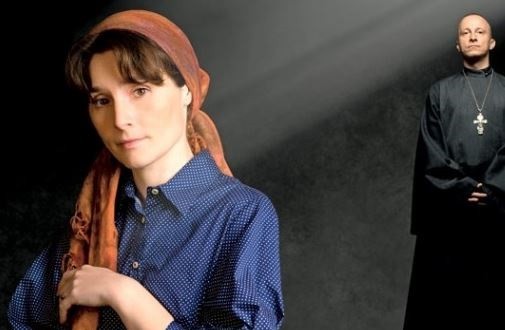Some priests might find the prospect of getting married attractive, but what about their would-be spouses asks Ruadhán Jones
In 2018, when the World Meeting of Families came to Ireland, it gave me a chance to reconnect with a priest-friend from Romania. He holds the unique spot in my life as the only married priest that I know. A Byzantine Catholic, one of the Eastern Rites of the Church, he married straight after seminary and has one child.
Papal Mass
He and his wife are quite a lively pair and as we walked towards Phoenix park for the Papal Mass, my friend would barter with street-vendors for Pope Francis hats and scarves (as well as supposed holy water from St Francis’ well). None of the vendors knocked down their prices, but my priest-friend enjoyed it. As he moved on, he would give them a blessing. All this caused his wife much embarrassment, and she would drag him away saying, “No, no, they do not want to be blessed!”
In that sense, he seems to confirm the prevailing belief that marriage can be a panacea for the vocations crisis”
It is quite an odd dynamic, but a very human one. When I first met them, their relationship had an extra layer of strangeness as here before me was that creature much vaunted in sections of the Irish press and Church – a married priest.
In a recent interview, Archbishop-elect of Dublin Dr Dermot Farrell suggested he would be open to an Orthodox (as in the churches) approach to priestly celibacy. He’s not alone in that view, and perhaps he would be interested in the life and ministry of my friend.
I know I was interested and still am. He is, if one can make such judgements, an excellent priest – one in the mould of Pope Francis. He is deeply involved in his local community – he recently completed construction on a small school and orphanage – and is devoted to the liturgy. On top of this, he is also a loving father and husband.
In that sense, he seems to confirm the prevailing belief that marriage can be a panacea for the vocations crisis. But of course, this doesn’t ‘prove’ anything – other than the excellence of one man – and many have pointed out the obvious pitfalls of such an approach.
Speaking to my friend’s wife, she highlighted an issue which I hadn’t thought of. Women don’t necessarily want to marry priests. She told me that young seminarians who want a wife are struggling to find one – the prospects their life offers simply aren’t attractive enough to young women. The priest’s vocation is a difficult one, a sacrificial one which cannot promise suburban bliss.
While the lives of our own society’s heroes – doctors, firemen, sportsmen and the like – are no doubt demanding, they can at least provide what most today consider a ‘good’ life for their families. Equally, the priestly vocation is perhaps more demanding because they are set apart in a way these people aren’t. A priest is simply not going to be as well paid or to able live as freely as the above-mentioned heroes.
Eastern Churches
It shouldn’t be a surprise then that Eastern Churches have real titles for the priest’s wife – presbytera or pani matka or khouria. To be a priest’s wife is to respond to a calling of one’s own and with it comes certain expectations. What woman is likely to put up with the challenges of a priest-husband-father, knowing that he has to be ‘on call’ effectively every weekend of the year, knowing that his pay is likely to be low, knowing that you could just be putting down roots when his bishop asks him to move parishes?
Of course, modern women are well entrenched in the workforce and can have lives and means of their own. But that cannot change the fact that your husband ‘belongs’ to another, to a whole community, in a way that is radically different from any other profession.


 Ruadhán Jones
Ruadhán Jones
